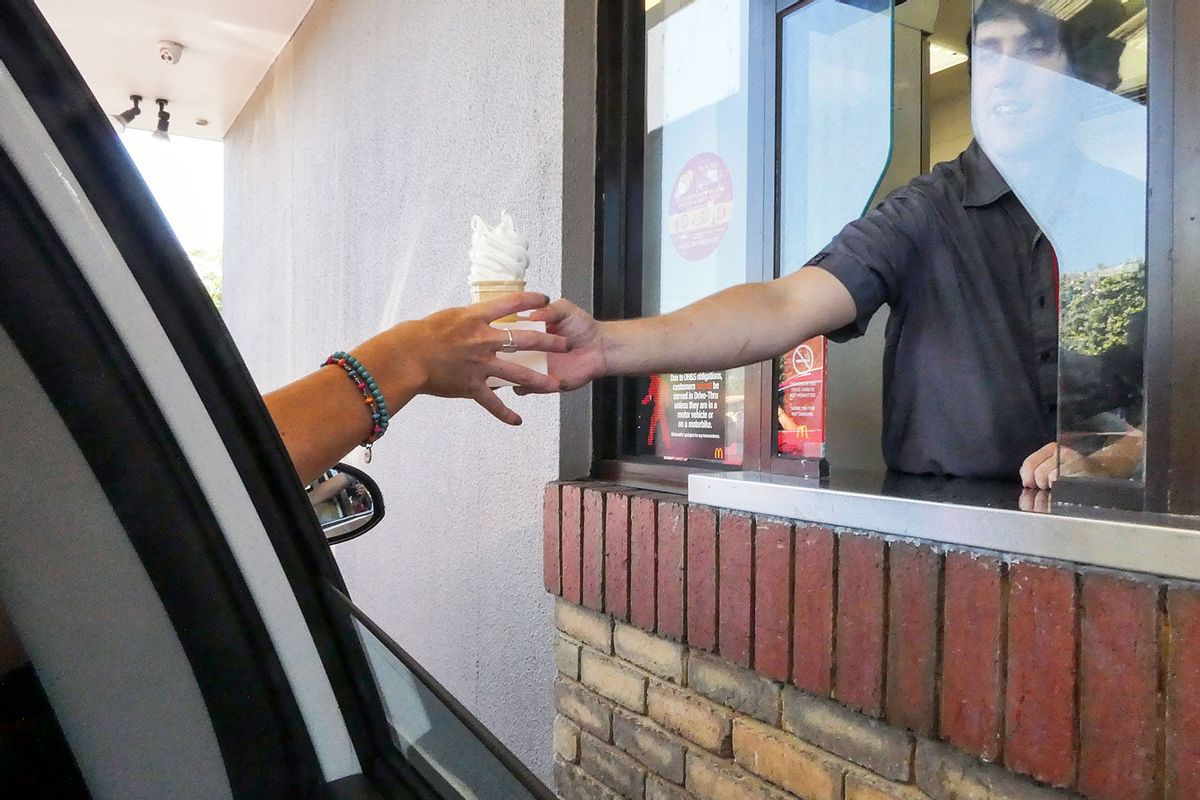McDonald’s ice cream machines have garnered an infamous — and comical — reputation for always being broken. So much so that soon-to-be-president Donald Trump made a campaign promise to repair the machines once in office. “WHEN I’M PRESIDENT THE MCDONALD’S ICE CREAM MACHINES WILL WORK GREAT AGAIN!” he wrote on his social media platform.
Unfortunately for Trump, he was too slow to make that a reality because Lina Khan, Chair of the Federal Trade Commission (FTC), had already beaten him to it, per a report from Mother Jones. On Oct. 25, the day before Trump’s pledge, the United States Copyright Office announced a new copyright exemption allowing some small business owners and franchisees to repair “retail-level commercial food preparation equipment.” It targeted the Digital Millennium Copyright Act, which protects the functional software within the ice cream machines. The law itself made it illegal for third parties (like McDonald’s employees and franchisee owners) to break the machines’ digital locks and conduct any repairs. Only the machine’s manufacturer could fix them.
The fast food chain’s ice cream machines were made by the Taylor Company, an Illinois-based manufacturer of food service equipment. Prior to the exemption, only licensed Taylor Company technicians could repair the machines.
Back in March, the FTC and the U.S. Department of Justice Antitrust Division submitted a joint comment urging the U.S. Copyright Office to expand the right to repair certain equipment, including industrial and commercial equipment.
“In the Agencies’ view, renewing and expanding repair-related exemptions would promote competition in markets for replacement parts, repair, and maintenance services, as well as facilitate competition in markets for repairable products,” the comment read.
“Promoting competition in repair markets benefits consumers and workers because it makes it easier and cheaper to fix things you own. Eliminating repair restrictions can lower the cost of repairs, improve access to repair services, and minimize costly and inconvenient delays.”
The new rule, which went into effect on Monday, is a major step forward in the so-called Right to Repair movement that strives to allow people who purchased certain mechanical equipment to fix them on their own. “We've seen over the last decade or so, manufacturers have realized that they can make a lot of money by monopolizing repair of their devices,” Jason Koebler, a tech journalist at 404 Media, told NPR. “So they make it very difficult to get into the diagnostic systems of these devices to find out what's going wrong.”
Koebler explained that the movement kickstarted more than 15 years ago when a growing number of farmers struggled to repair their John Deere tractors, which had become more high-tech with new sensors and software. Amid the pandemic’s peak, the movement grew prevalent within the medical device field. Many hospitals were operating with broken ventilators that weren’t being repaired on time.
Want more great food writing and recipes? Subscribe to Salon Food's newsletter, The Bite.
“And, you know, hospitals often have their own trained repair people to fix medical devices,” Koebler said. “But they often were not able to fix ventilators because the manufacturers were overwhelmed by the number of ventilators that were broken because there were so many being used.”
In Oct. 2021, the U.S. Copyright Office granted access to medical device data, encompassing devices that aren’t implanted and allowing patients to authorize third parties to access devices to a certain extent.
The Right to Repair movement prevails with the latest exemption. “Victory is sweet,” Elizabeth Chamberlain of iFixIt wrote in a blog post. “This is a big win — and we’ll be celebrating with ice cream! — but copyright law still needs fixing before we’re free to fix everything we own.”



Shares